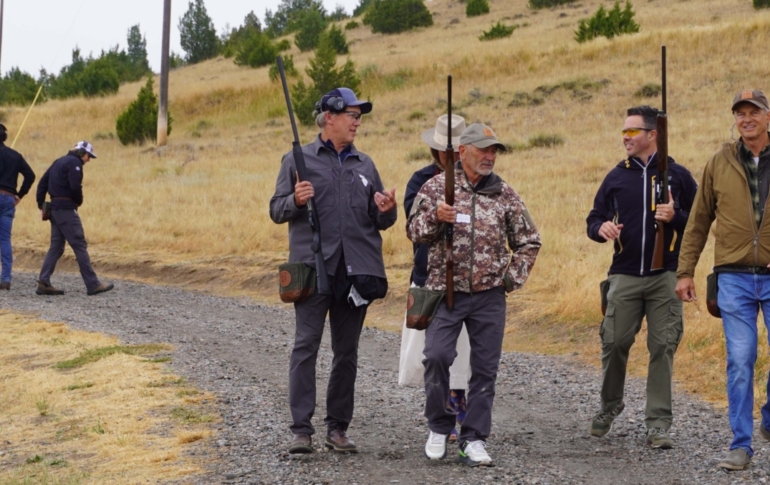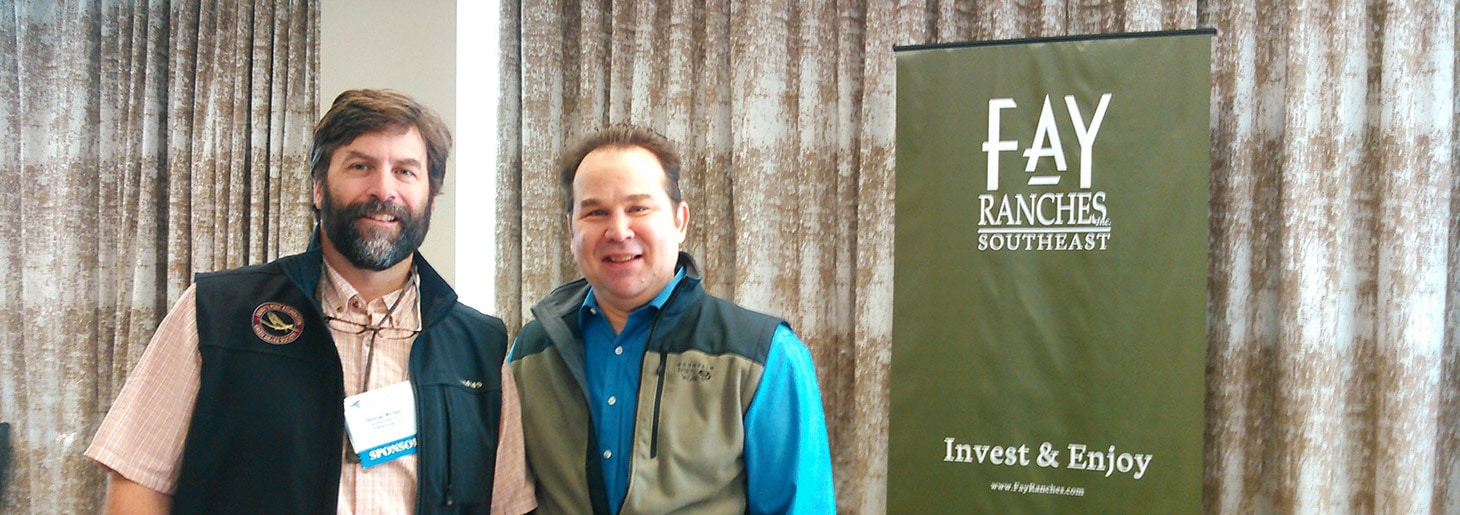What You Need to Know About Land Trusts & the Conservation Easements They Hold
By George “Mac” E. McGee IV
Recently, I attended the Southeastern Land Trust Alliance Conference in Chattanooga, Tennessee. During the three-day conference, of which Fay Ranches was a sponsor, I visited with regional representatives from the Alliance, The Conservation Fund, Southern Company, U.S. Forest Service, timber companies, and land trusts. The event provided excellent presentations and focus groups detailing issues within the Southeastern conservation easement community and rural land management. I left the conference twice as motivated to support the Alliance and its work to enhance quality land conservation.

While this conference may have been a regional event, the efforts of the Land Trust Alliance are coast to coast. The Alliance, simply put, strives to strengthen all land trusts and their conservation easements. One way in which it accomplishes its mission is by providing membership and accreditation opportunities to land trusts. Currently, there are approximately 1,000 members in its directory, all of which have adopted high standards of practice. And of those members, there are nearly 400 have received accreditation. Learn more about the Alliance, its membership, and how to find the nearest accredited land trust in your area by clicking here.

At the core of the work of land trusts are conservation easements, the voluntary legal agreements between landowner and land trust that permanently limit the uses of land in order to protect its conservation value.
Everyone benefits from conservation easements. Land trusts are nonprofit organizations that operate in the public interest and yield public benefits. These benefits are present even when the public cannot physically walk the land. Conserved land helps filter our air and water supply, absorb carbon emissions, and conserve wildlife habitats, among many other benefits. The work of land trusts also preserves natural spaces or traditional working uses in farms, ranches, & timberlands. At the same time, landowners can benefit financially from conservation easements in three ways: by taking advantage of attractive income tax deductions derived from the loss of developmental rights, by experiencing lower property tax, and by lowering estate taxes when passing property on to a family member.
Unfortunately, a key distinction between land trusts has emerged in recent years. While most operate with high standards and are members of the Alliance – working hard to assess and hold only those conservation easements which pass a valuation “sniff test” — there are other land trusts who are not Alliance members or do not aspire to be. Many of these have “hot” reputations for taking on the “bad” conservation easements with inflated appraisals or suspect methodology in their derivations. This phenomenon has given rise to corrective legislation in Washington, D.C.: the Charitable Conservation Easement Program Integrity Act.
With the climate of the rising land market, we are seeing a surge of more “bad” conservation easements. Almost like a bubble, the “hot” land trusts appear to keep taking on more “bad” easements. But what happens when this bubble bursts? And what happens when any or all of these “hot” land trusts fail? Who will be there to pick up the pieces and maintain these lands in perpetuity? We feel this current & growing dilemma is creating an unnecessary liability across the U.S. for all land trusts. This is the concern our firm shares with many others, and this is why we support good conservation easements and strong land trusts.
This matter is important to us. Conservation is one of the four values on which Fay Ranches was built. The other three are family, investment value, and sporting pursuits. We love the land and promote the use of thoughtful land stewardship. We’re proud to say that since our company began in 1992, the landscape on which we work has been enhanced by the conservation ethic and land-use practices of our clients.

Joette Schalla, ALC, Land Broker of the Year by Colorado RLI Chapter
Fay Ranches is proud to recognize the outstanding achievement of our own Joette Schalla, ALC, who has been named Land Broker of the Year by the Colorado Chapter of the REALTORS® Land Institute. This prestigious award highlights the exceptional professionals in the land industry who demonstrate expertise, leadership, and an unwavering commitment to their clients […]

Breaking Clays, Building Futures: Fay Ranches at the First Annual FRCF Clay Shoot
On August 27th, the Fay Rural Community Foundation (FRCF) hosted its first annual Clay Shoot, bringing together 66 participants across 17 teams for a day of sport, camaraderie, and purpose. Despite the rainy weather, the event raised more than $24,000 to support rural communities. For Fay Ranches, this event was more than a fundraiser. Our […]



